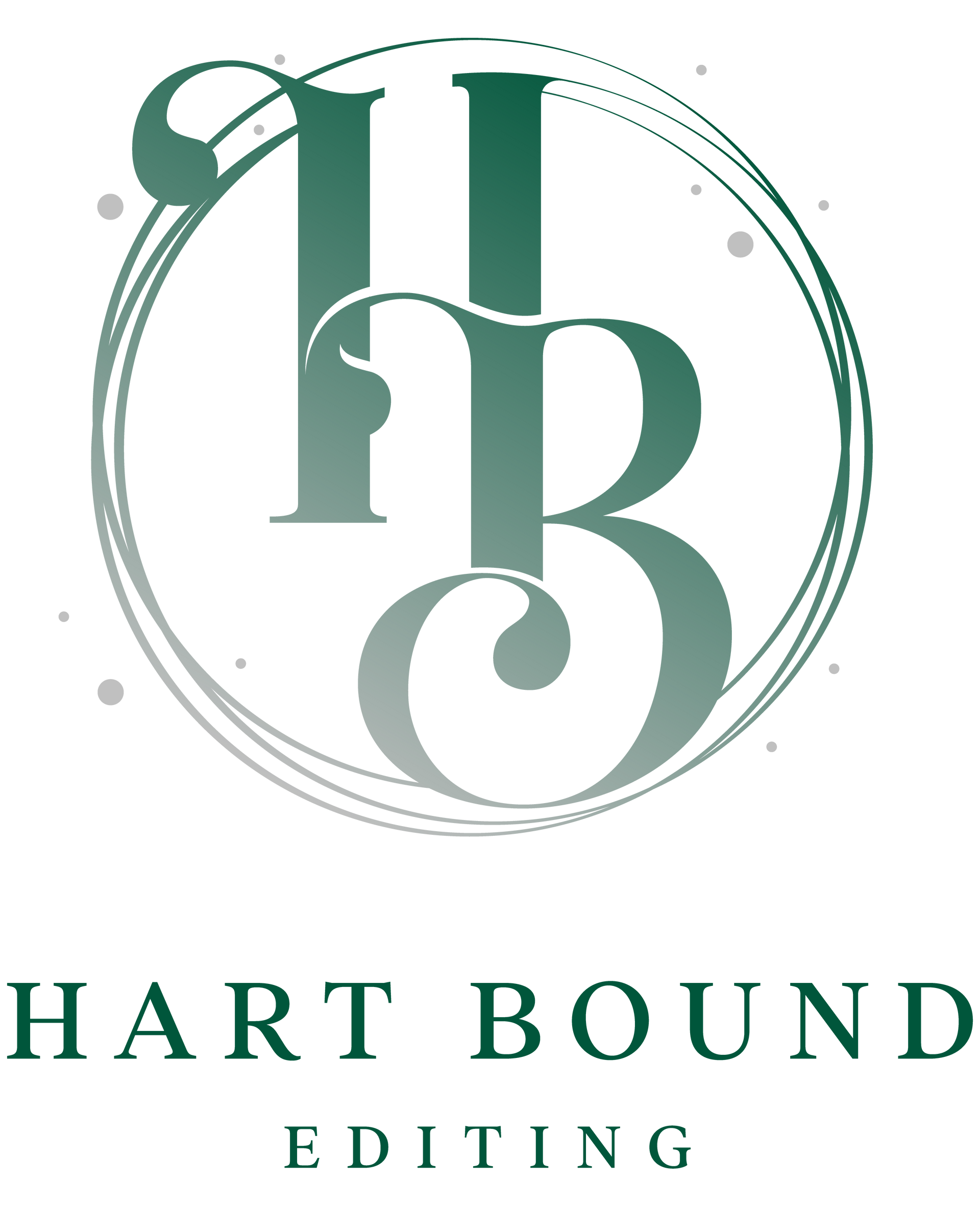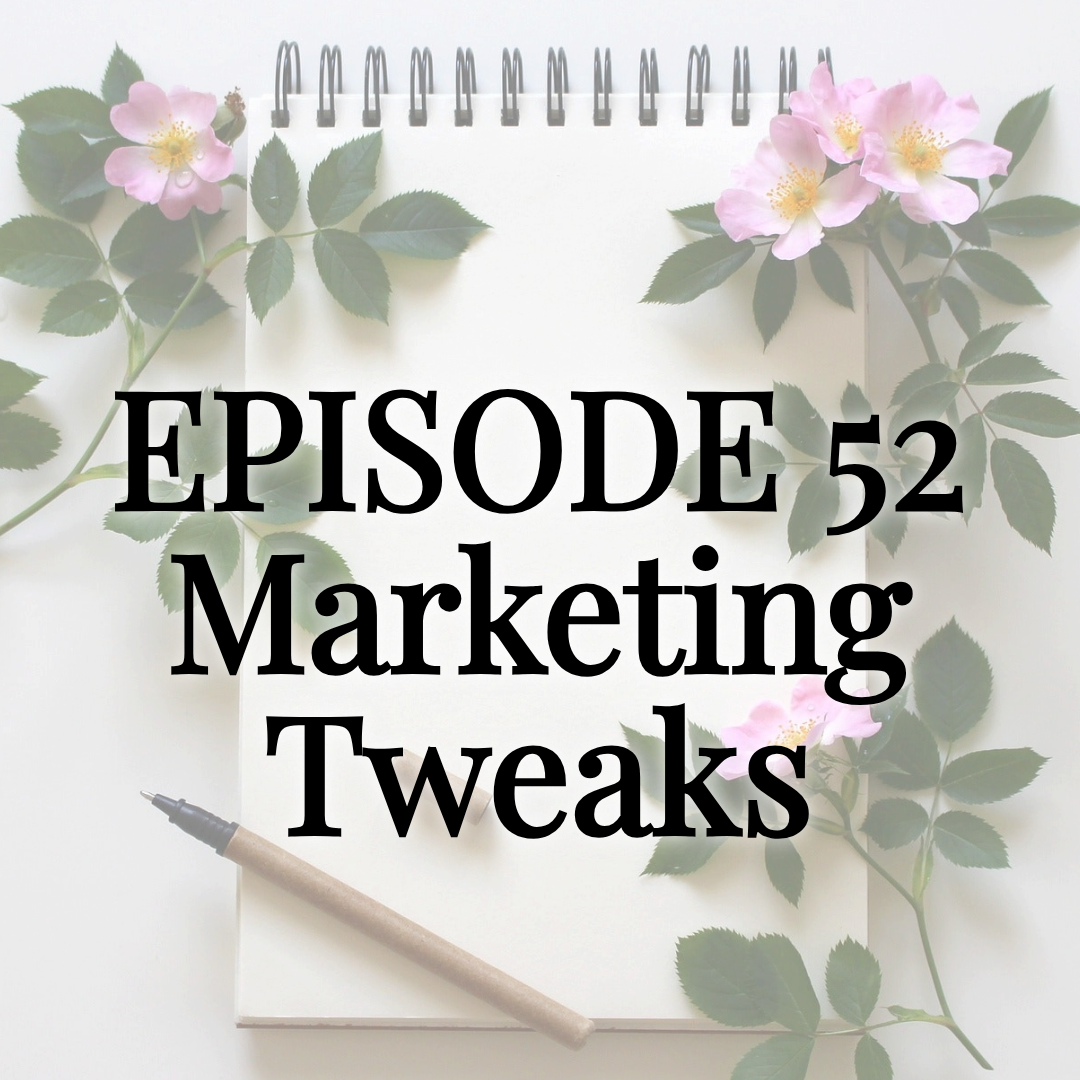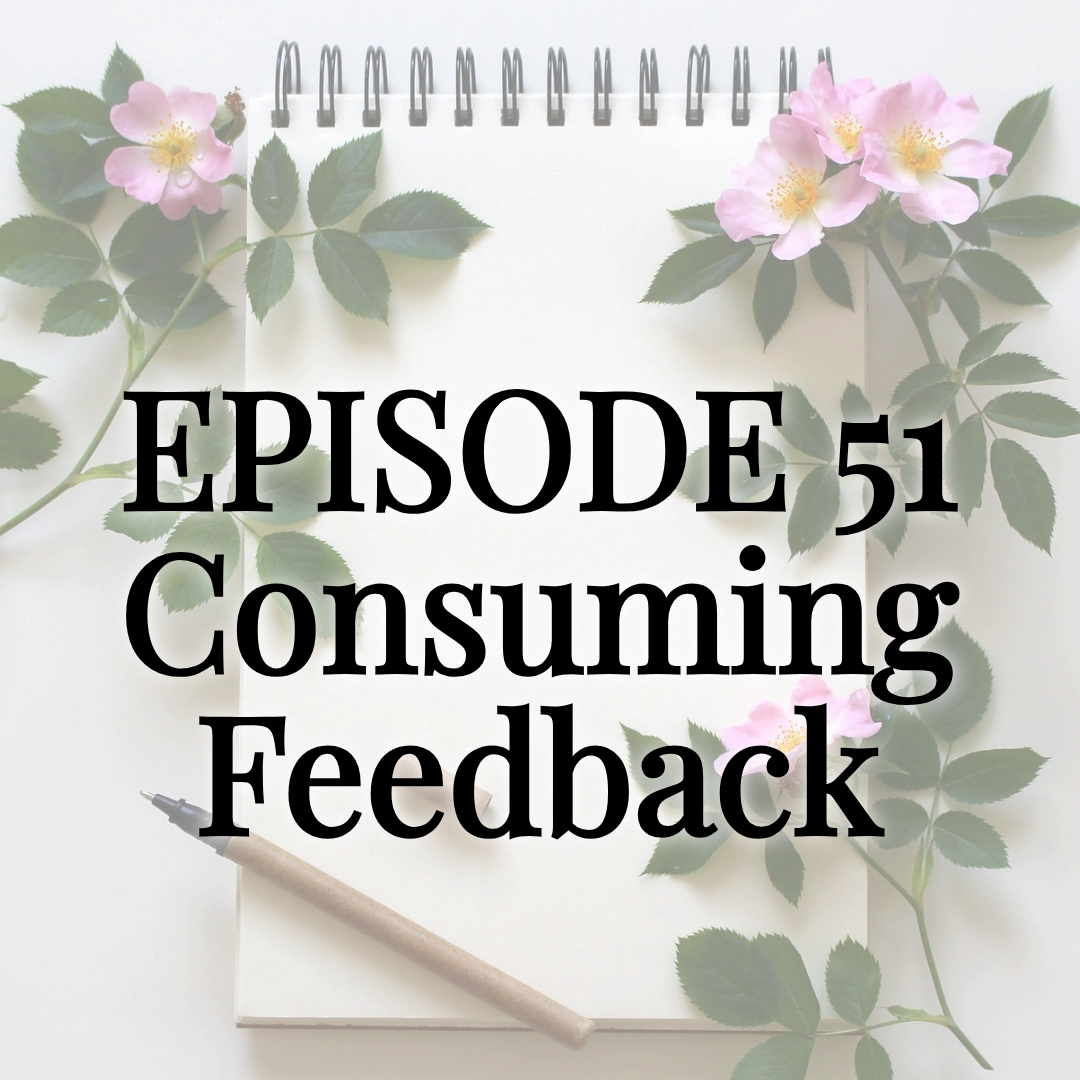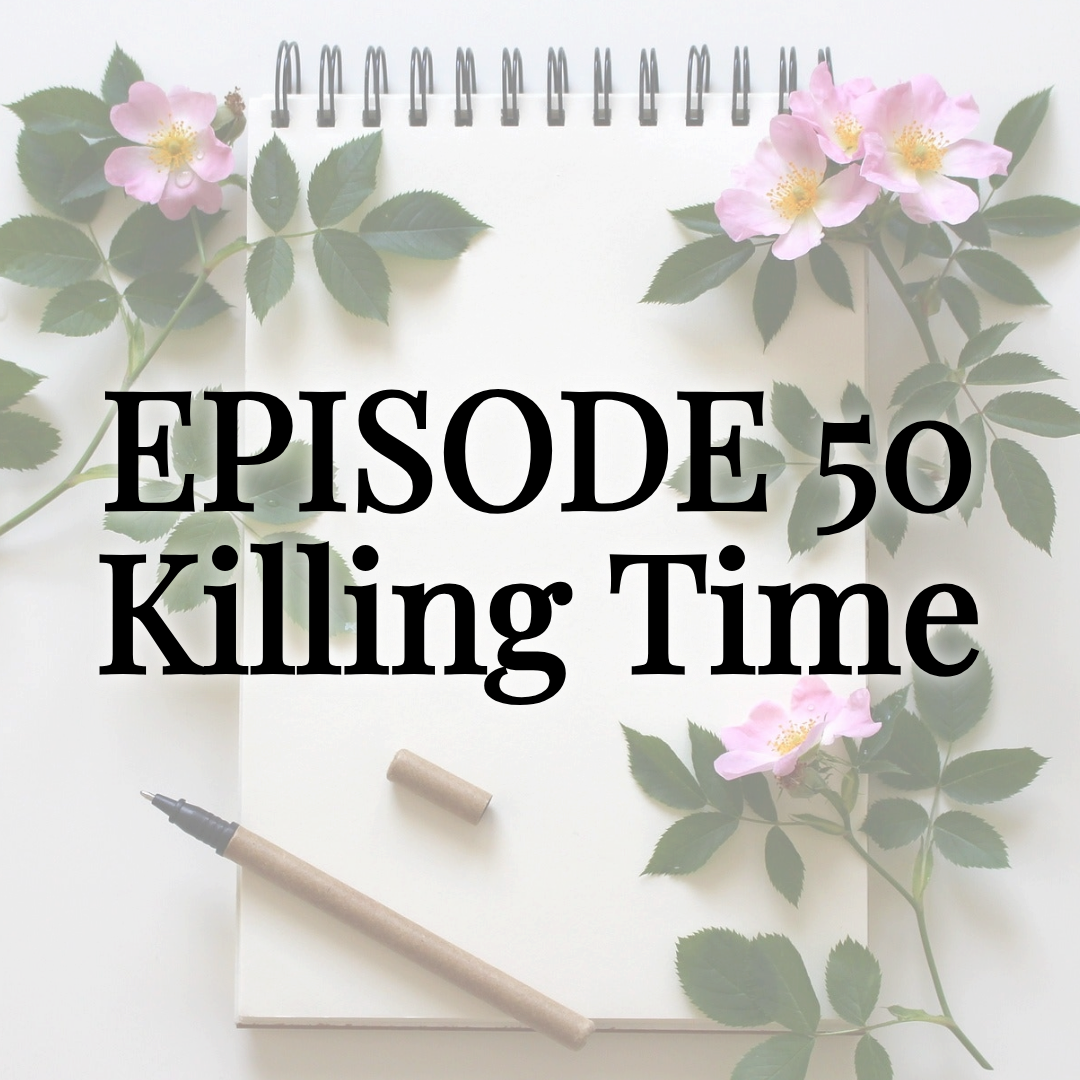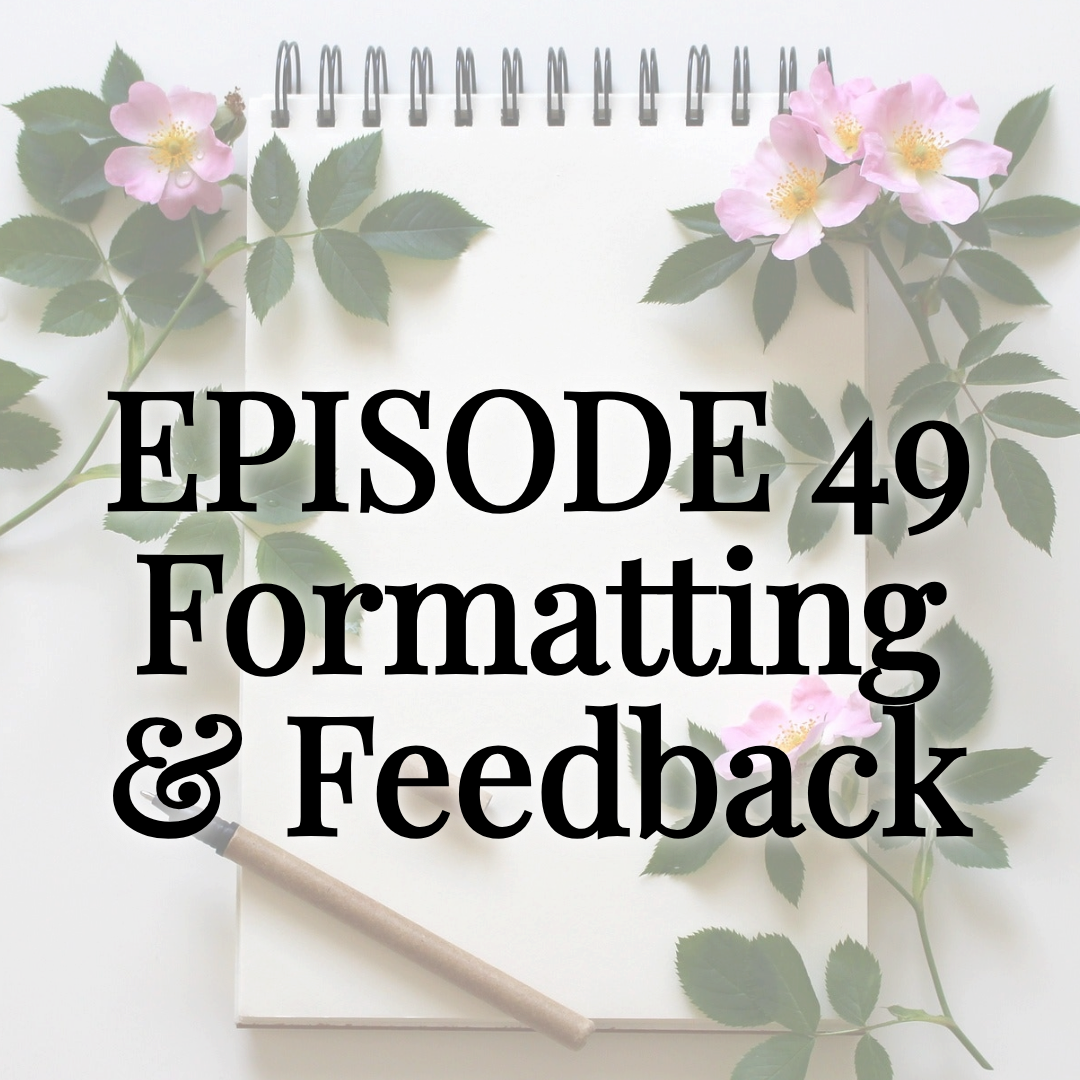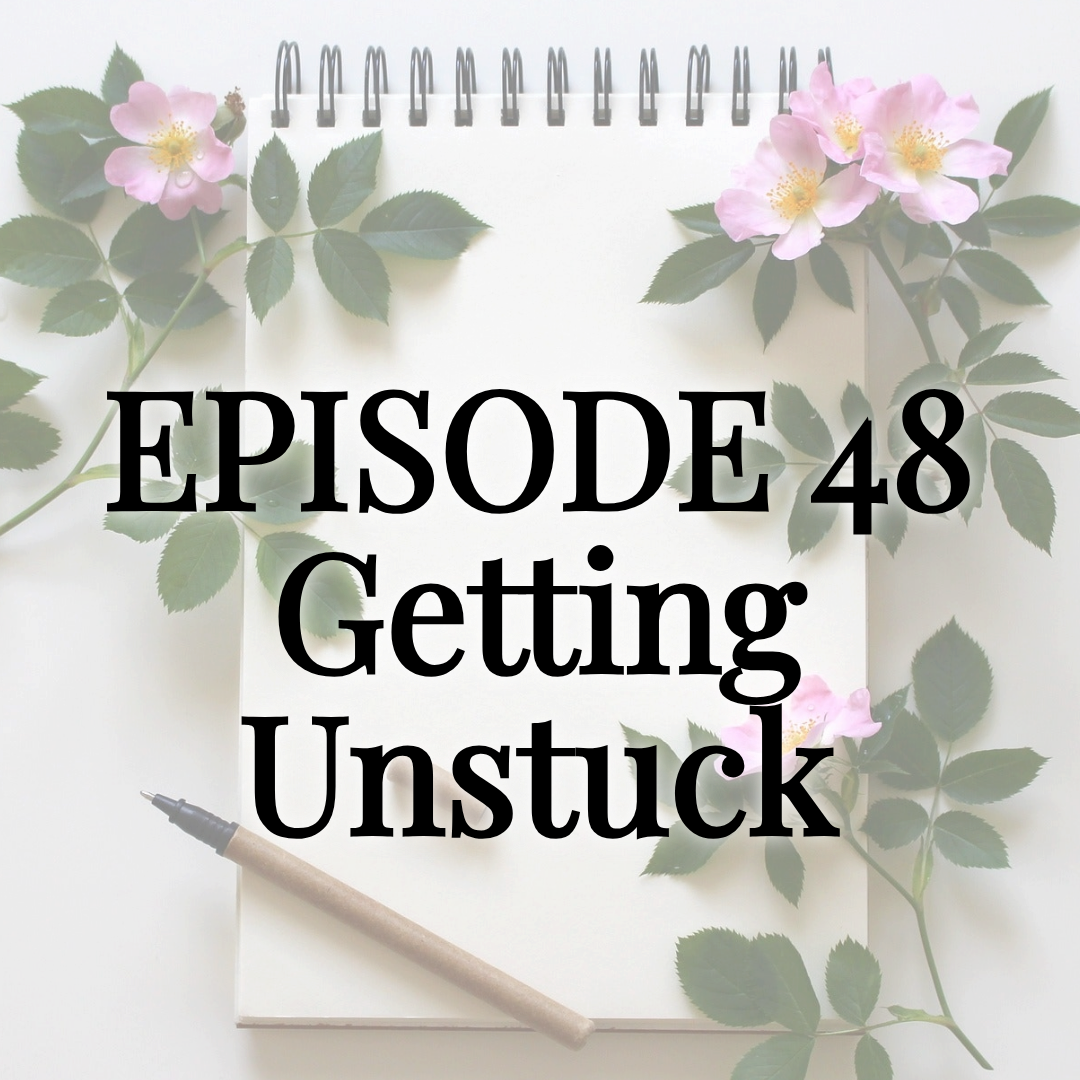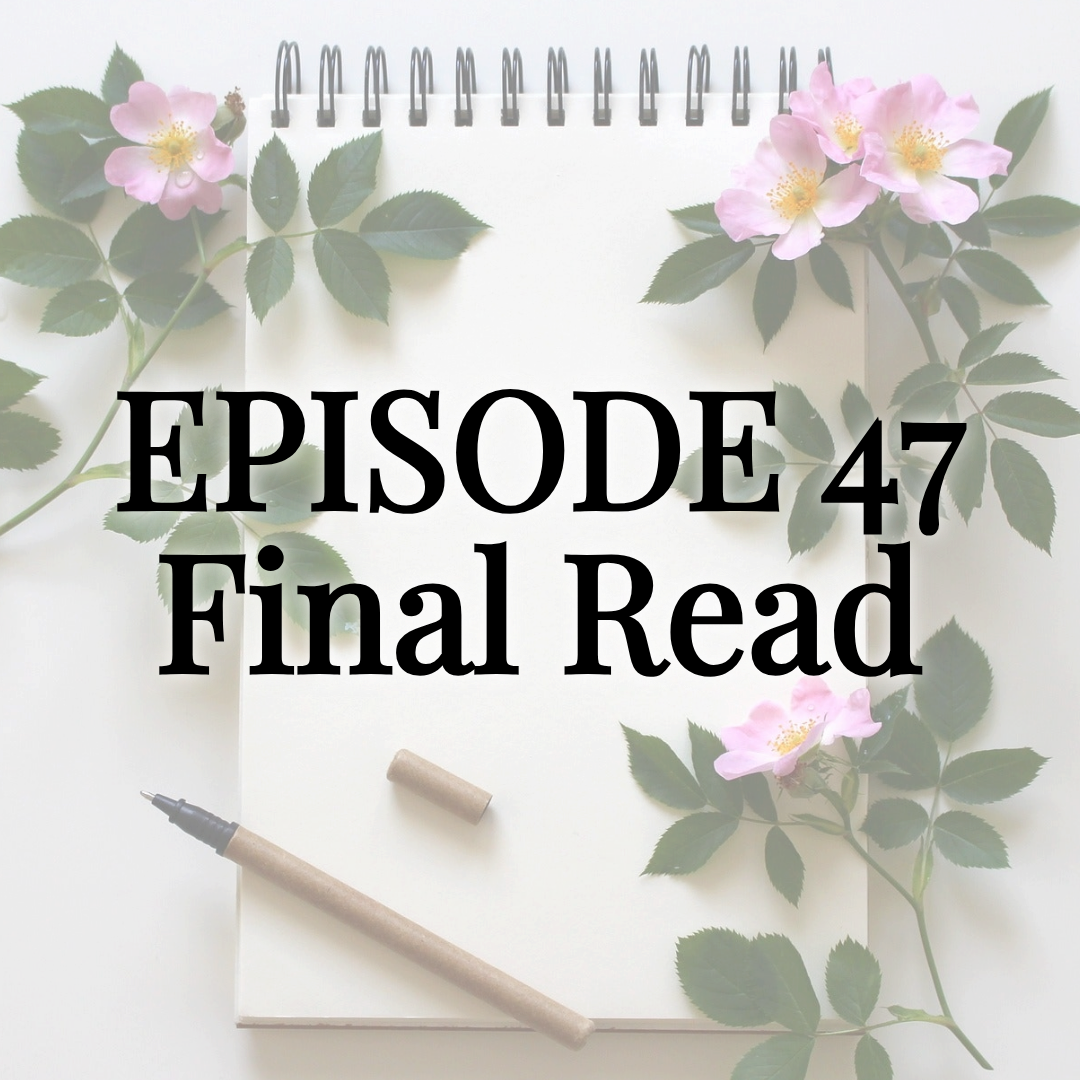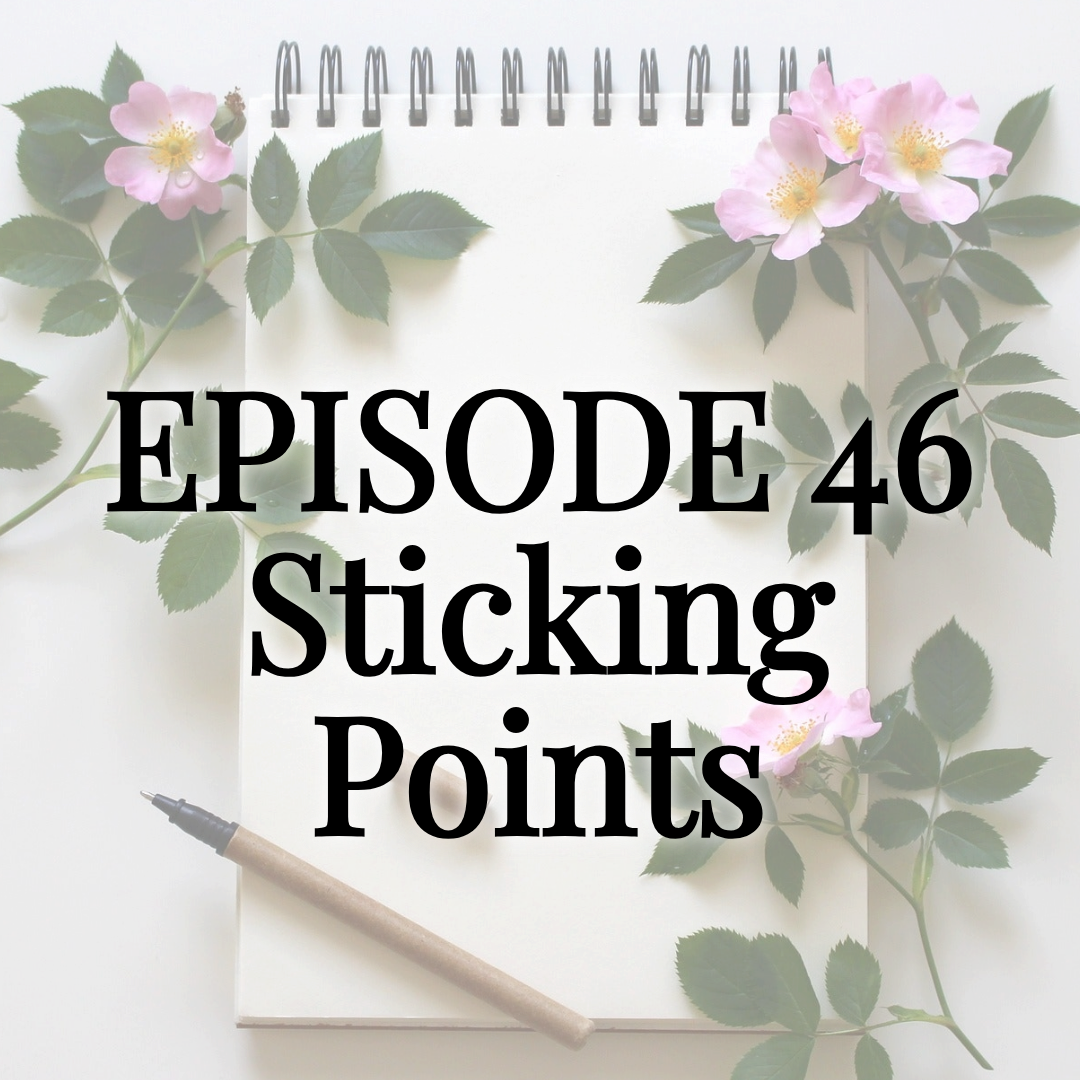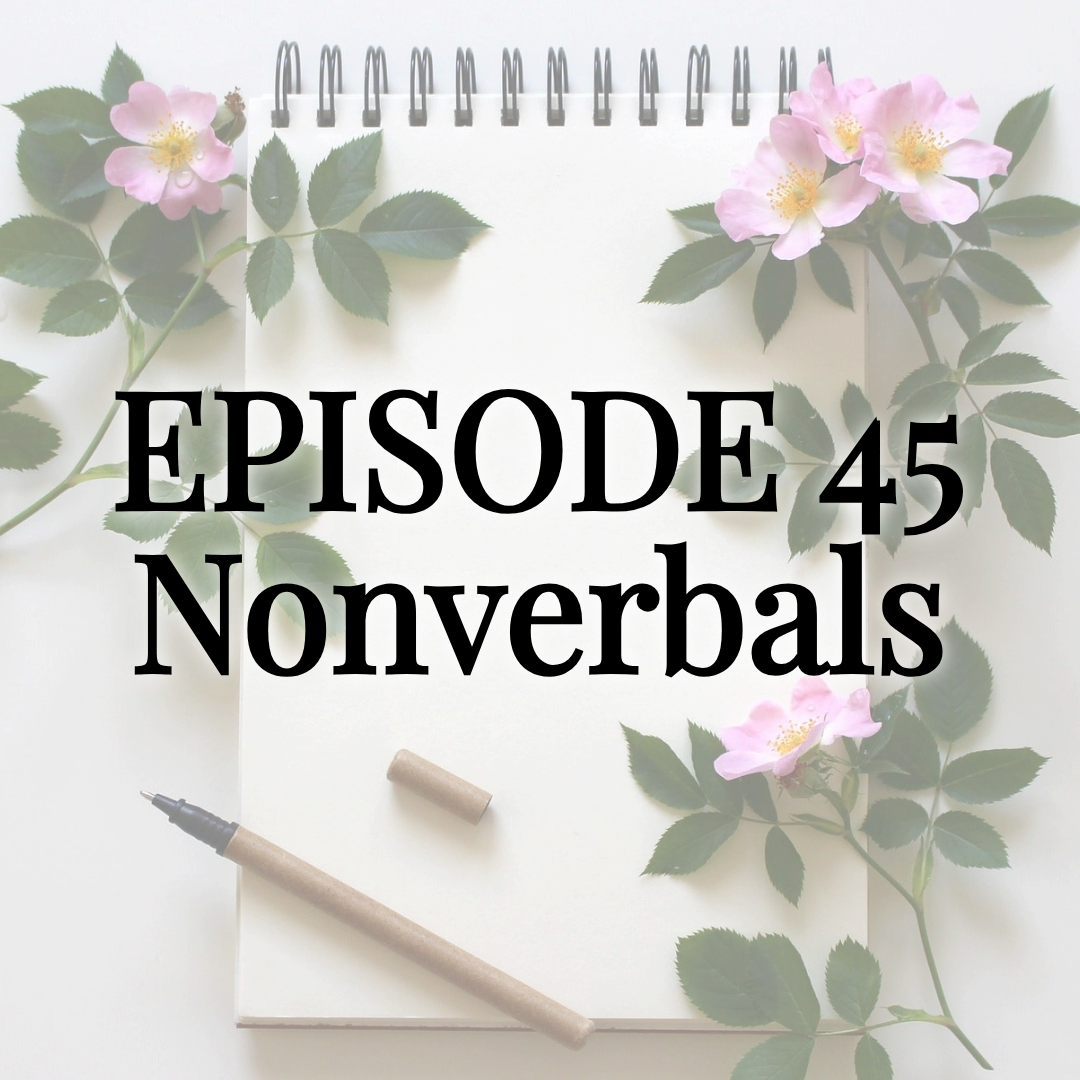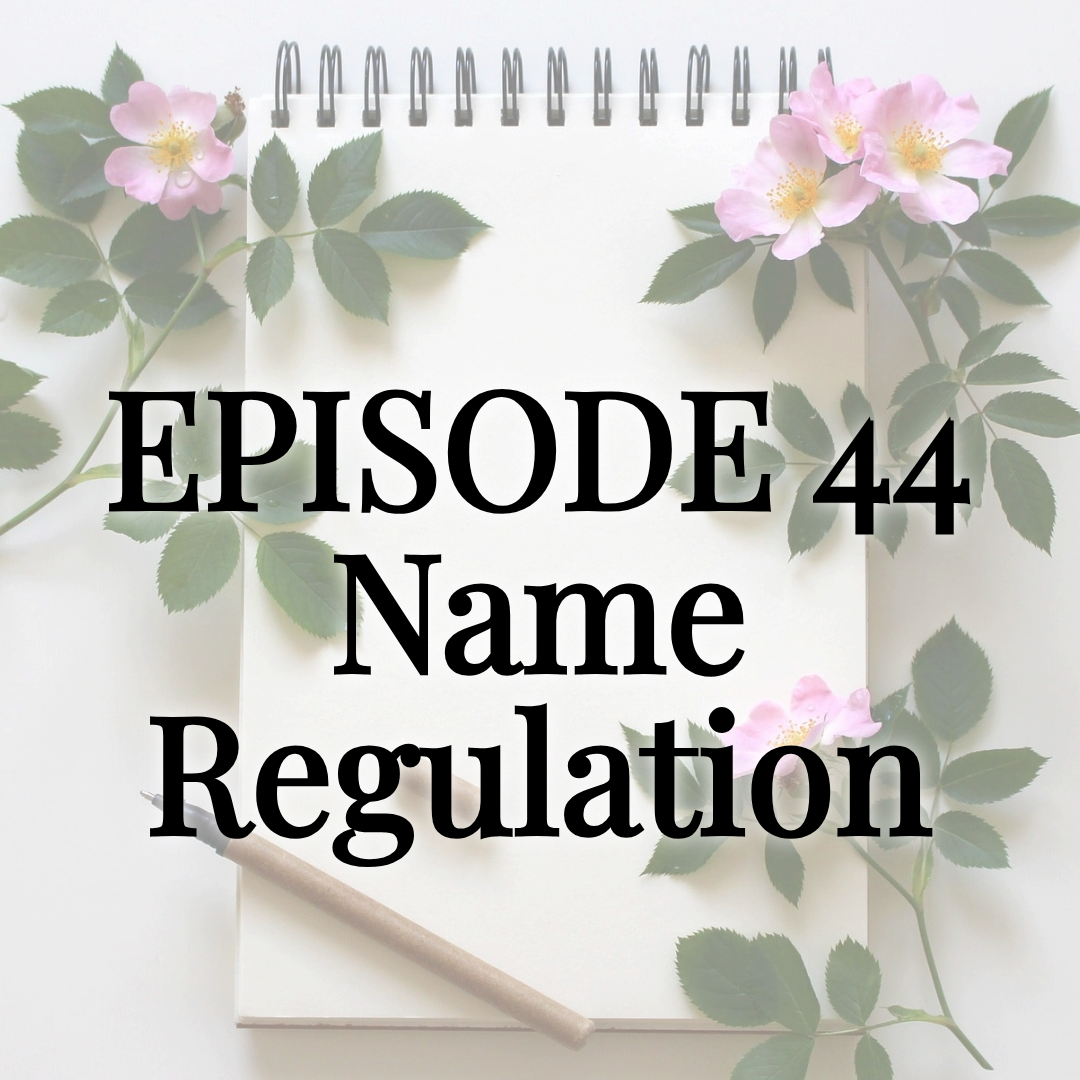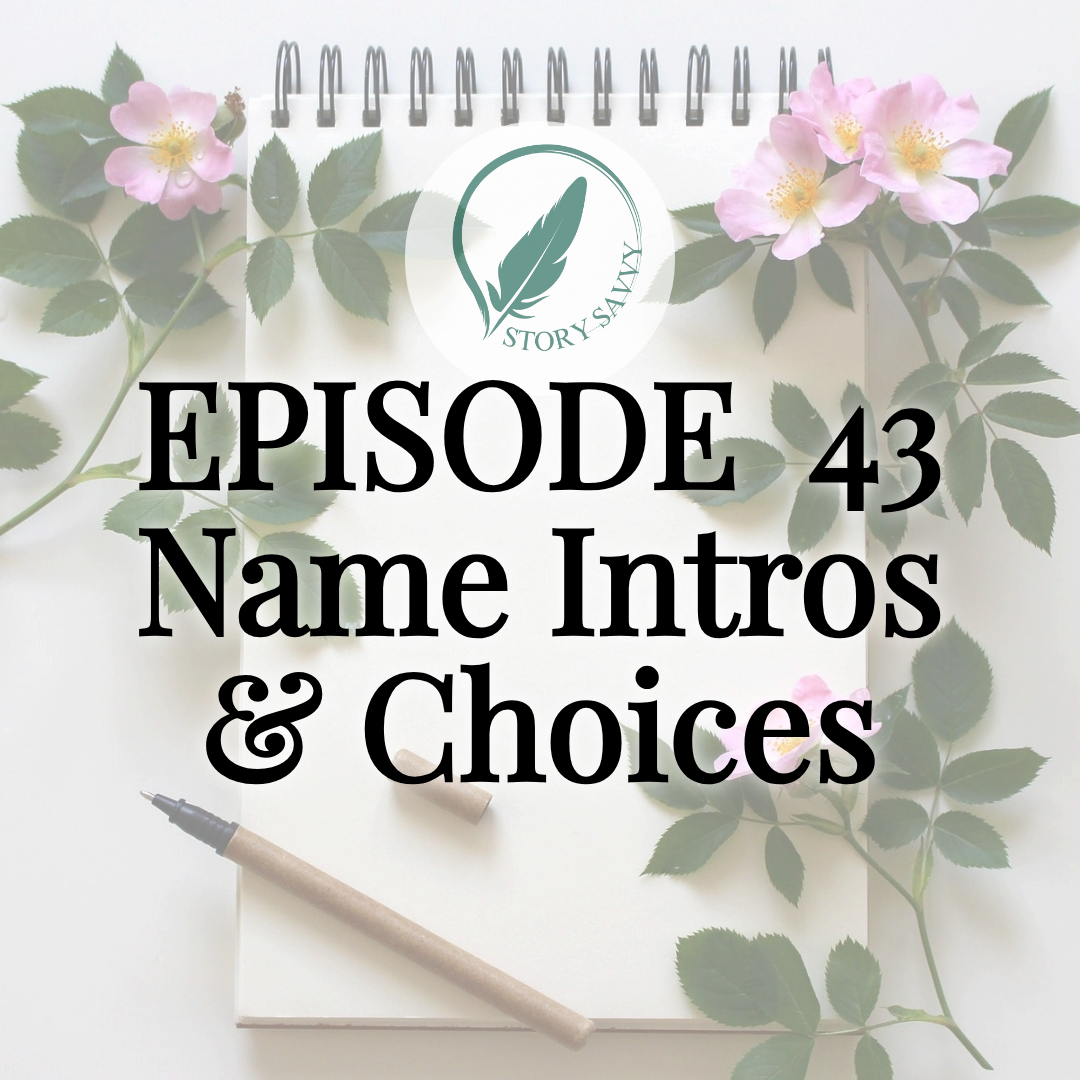Dialing Up Uniqueness: Story Savvy Self-Editing Episode 38
Dialing Up Uniqueness: After-episode thoughts, overview, and transcript…
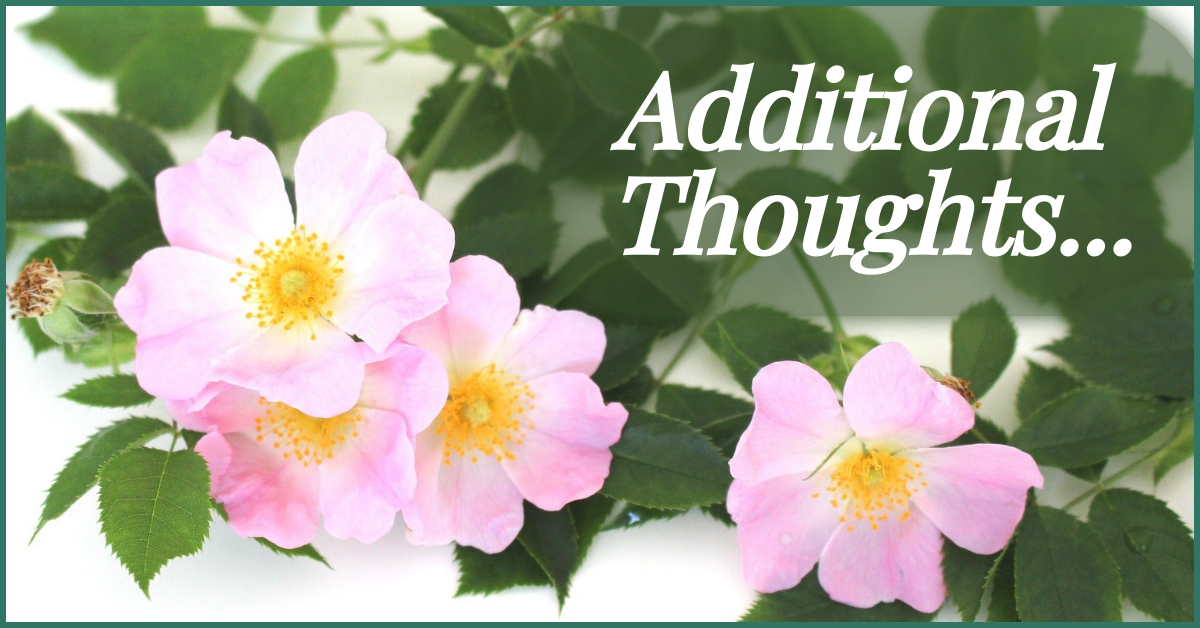
The other episodes in this series referenced in this one are:
Episode 5: Your Non-Negotiables
Episode 10: Character Arcs & Protagonist Transformations
Episode 29: Character Consistency, Depth, & Uniqueness
Episode 37: Handling Jumps in Time, Place, & POV
Happy editing!
Episode 38 Overview:
Dialing Up Uniqueness
“Where could I take something boring and bring it more into my unique or immersively specific world-building? How can I make my story stand out, and be more memorably one-of-a-kind?”
In this episode of the Story Savvy series, we dive into fantasy novel editing and the challenges of self-editing fiction without losing your voice. Developmental editor Rebecca Hartwell and fantasy author Agnes Wolfe share insights into narrative consistency, avoiding clichés, and strengthening characters. Learn how to balance creativity with genre expectations in fiction, refine world building for fantasy, and recognize when formulaic storytelling becomes a pitfall. This episode offers a practical guide for anyone navigating fiction editing strategies.
In this episode, developmental editor Rebecca Hartwell and aspiring fantasy author Agnes Wolfe discuss how to make your fiction stand out. From characters to world-building, they explore how to add originality without slipping into purple prose or breaking genre expectations. You’ll discover practical strategies for spotting flat or overused elements, balancing formula with invention, and embedding small, unique details that make your book more memorable.
In this episode:
• The benefits of adding unique details to your story
• Common pitfalls when trying to be too inventive or not inventive enough
• How to balance formulaic storytelling with originality
• Ways to brainstorm and fully embed unique worldbuilding choices
• Strategies for strengthening flat characters
• How to identify boring or overused elements in your writing
Recommended Resources:
• Hart Bound Developmental Editing: www.hartboundediting.com
• Authors’ Alcove: www.authorsalcove.com
See you next week for episode 39: Polishing POV, Tense, & Person
Episode 38 Transcript:
Dialing Up Uniqueness
Rebecca Hartwell: Hello and welcome to the Hart Bound Editing Podcast. This is episode 38 of the weekly Story Savvy series, where we tackle the 52 biggest self-editing topics and tips to help you make your good story great as an aspiring author asks me, a developmental editor, all of the questions that you have wanted to. We have covered a bunch in this series so far, including last week's episode on handling jumps in time, place, or POV. Today, we are going to tackle dialing up how original, unique, invented, or embedded small details in your novel are. By the end of this episode, you will hopefully have a feel for what aspects in your story could be improved in this regard, how that can really help the long-term life of your book, and have some ideas for how to shift things more in that direction. Joining me to ask all of the questions is my friend and co-host, Agnes Wolf.
Agnes Wolfe: Hi! I'm an aspiring fantasy author who hopes to release her first middle grade fantasy later next year, and also host and founder of Author's Alcove. I'm here today to go over dialing up uniqueness in our stories. I am super excited about this particular topic, because that’s—one of my favorite parts as a reader is finding those gems that are very unique and do something different than others. So, before we start talking specifically, I just want to hear what are some of the big upsides or benefits we are aiming for in trying to make things more unique?
Rebecca: I think you just made a great point. It can very much feel like treasure hunting when you're reading to find that little nugget, that thing that you haven't thought about before, or haven't encountered before. That can be a big payoff for your readers, so trying to provide at least one of those is worthwhile. Beyond that, it's a list of things that includes standing out in a flooded market for your genre, making your story more memorable for your readers. Avoiding ever getting accusations of plagiarism, and then, having silly aspects to it, like having more sellable side merch options, if you can do character art or stickers, or trinkets, whatever that is unlike whatever anyone else is offering. And at the end of the day, it's also just about improving your creativity muscles as a creative, as an author, as a writer.
Agnes: So, since it's been a few episodes since I've plugged this, I have to share about a very unique book that I—and I love the uniqueness, and it's called A Heart of Flame—
Rebecca: Thank you.
Agnes: —by Rebecca Hartwell. But one of the things that I really loved about your book is actually the idea of an aura, and I'm not going to go too much into it, but that plays a huge part in being able to see, smell, and other things, and have that be an integral part. That was one of my very favorite parts about your books.
Rebecca: Thank you!
Agnes: And so, that was what made your book special to me, and I think that those sort of things is what makes any book special. That thing that is very unique. Unfortunately, there sometimes are downsides, so I want to also cover that as well. What are the biggest downsides we might run into if we get this step in our self-editing wrong, or miss the mark?
Rebecca: Yeah. Everything is derivative, and I want to get that out of the way in this episode here. That is unavoidable in the 21st century. Everything is going to be derivative of something that came before. But, inventive takes on derivative ideas is what makes headlines. If you miss the mark, that can go in a few different ways that I've seen. First, you simply don't have enough uniqueness, and so you lack anything to catch attention, or you have to field criticism of your work being too formulaic or cookie-cutter. The second way that I've seen this go wrong is that you go overboard with adding creative uniqueness, and end up with a bunch of Purple Prose Fluff Meandering shoe leather in your worldbuilding for the sake of it, that isn't actually going anywhere, or contributing to the story or moving it forward. And then the third way that I've seen this go wrong is that you accidentally introduce plot holes or inconsistencies, or other issues like that in pushing this uniqueness envelope for your story. I guess that wasn't last. So, fourth, the issue that I'll see is that you don't correctly gauge the uniqueness spectrum acceptable for your genre. For example, contemporary romance actually wants minimal inventiveness, for the most part. But sci-fi, or high fantasy very much want as much as you can possibly manage.
Agnes: Very true, because when I want a Hallmark movie, I want a Hallmark movie. I want to know exactly what's going to happen next, because I want mindlessness right then.
Rebecca: Yeah, exactly, yeah.
Agnes: But with my fantasy, I have to have inventiveness. Okay, so, then talking about that, then, what's the right balance, and how do we get this exercise right to make sure that we have a good balance for our genre?
Rebecca: Yeah, so first of all, by all means, check your genre, and if there's a large spectrum of variety within your genre, check your subgenre and your sub-sub-subgenre, and your niche, and whatever. And then, above all else, I suggest taking something that you are already using to make your story move forward and iteratively brainstorming how you could bring it more into your unique worldbuilding, or make it more immersive in some way. For example, let's say that you are writing high fantasy. Let's pick transportation as the topic within that to dial up the uniqueness around. So, write down horses as your current means of traveling far distances. Then, write down 10 or more alternate ideas, like riding giant eagles, or magically teleporting everywhere, magic-powered blimps or trains, riding moose, or elk, or whales, rickshaws as a way of life within your world, whatever, whatever you can come up with. Then, consider the upsides and downsides to each option. Such as, how much else in the world would be affected by one of them being the case instead of your overused default? And then from there, pick a favorite. Next, with that favorite, write out a list of everything that that choice will affect. In this case, let's say you decide that giant eagles are the way to go. Okay, well then, how does that affect luggage, saddles, stables, what you wear to travel, navigation and map-making? What training for the animals or the riders is needed, how do you care for your mount? What hurdles might you encounter trying to travel that way? What precautions are usually taken to avoid them? How do you overcome issues with bird travel if they come up? So much stuff like that. And then from that list go in one topic from that list at a time, and change, scrap, or add/explain things as needed to fully embed that more unique choice within the story. But again, taking something that is already a function within the story and renaming it, or reimagining that functioning aspect is very much the way to go.
Agnes: So, I feel like we've gone back and forth on whether formulaic is good or not. And so, I just really want to cover: is formulaic bad, or is it good? Is it really all that bad?
Rebecca: As with anything, there is a balance to be struck. There's a happy medium to find. So, again, the specific genre that we're talking about matters a lot. To play with that, sort of food metaphor that I've used in the past of a quesadilla’s a quesadilla, and that has a certain formula to it that makes it what it is, and that's why you like it. So, playing off that, some genres like mac and cheese and prefer that anything presented to them is just pasta, creamy cheese sauce, and maybe one or two toppings or additions that they generally deem acceptable, and Hallmark movies are a fantastic example of this. If you get too inventive with that, you're going to present your mac and cheese to someone and watch them poke at it with a fork, looking disappointed and bummed out, since this isn't going to taste like the comfort food that they wanted. Then other genres are like ramen. There is a huge variety in what that dish can be at so many levels, in all of its different aspects. And a lot of people who love that dish, like myself, love trying new, unusual, or risky—riskily inventive versions of it. There's a balance to be struck with all of it, no matter the audience. If you go too unique and inventive, then people won't know what to expect, or how to engage with it, or how to consume it, and might just get weirded out and decide that they're going to go try something that is more familiar, more predictable. But if you go too far in the direction of predictable and familiar and formulaic, then folks will get bored and burnt out on combining the exact same things over and over and over again, and go find something else to consume which offers something more uniquely enticing. So, I suggest always aiming for toughly a middle ground within your specific genre’s expectations.
Agnes: Alright, so speaking of formulaic, what if the version of a character or trope I wrote is super basic but that's exactly what I like about it? What if trying to make something more inventive or unique ruins, in my opinion, as the writer, what I'm really trying to do?
Rebecca: If it is your non-negotiable, do not touch it. That is, that is the entire point of non-negotiables. Go back to that episode if you need to. Let it be as basic as you want. Absolutely. Just go find something else in the book, that isn't related to your non-negotiable, to dial up your uniqueness around. And the same goes for any specific trope. Be that a character archetype, a plot point, world aspect, or anything else. Let the stuff you love as the basic version of it stand. Just go take the boring stuff that you don't care about as much, and tweak it up until it's interesting and inventive enough that you do care about it, and hopefully think that your readers will care about it, too.
Agnes: So, one of the things I knew before I sent you my book is that my main character, Amelia, was pretty flat. Could we explore how I could have made her a more rounded, interesting character?
Rebecca: To answer that question, I'd refer everyone back to our episode on character arcs and well-rounded characters, but, let's do a little exercise here, looking at this specifically from a perspective of dialing up uniqueness. So, my first question to you is, what do you currently think is the boring aspect around her that you are most attached to and most don't want to change?
Agnes: The boring aspect that I don't want to change?
Rebecca: Yeah.
Agnes: She is very soft. She is very meek. And that's kind of boring. But it's also part of who she is.
Rebecca: Okay. Fair enough. Okay, so, from there, what do you think is her current most interesting feature that isn't really reaching a bar of interest, to your perspective?
Agnes: I think the fact that you can be bold and strong, and I don't feel like I really pulled that out when I was writing.
Rebecca: Okay.
Agnes: That she can be very bold and strong, because I don't think meekness means weak. And, yeah.
Rebecca: Sure. I mean, making sure that things are showing up on the page as intended is a great thing to bear in mind there. So, my next question for you is what are, let's say, 3 to 5 ideas right off the top of your head that are possible ways that you could dial up her uniqueness or her interest?
Agnes: I know that one of the things that I had kind of played around in my head, is … one thing about my husband is he's, he's a pretty quiet guy, but he is sneak attack funny. Where he’s—and I love that about him, and I—and so, as I recently deleted a character, and that was something that maybe I want to add the fact that she's funny, too, because that's something that I thought it would kind of surprise. Yeah, I think you could do it in a way that seems organic as well. I think what I'd also like her to be is a little bit neurotic. Because I think that that kind of plays with a little bit of that meekness and that over-analyzing and just a little bit of neuroticism. Nothing over the top, but, like—
Rebecca: Sure.
Agnes: You know. I think a lot of, especially, I think middle graders, a lot of middle grade books, the characters tend to be a little bit that way anyway.
Rebecca: Sure. Okay, so let's just look at your, your first example there. And do you think that adding that aspect in would have more effect on the plot, or change the plot more than you are willing to deal with?
Agnes: No.
Rebecca: Or do you think that it is doable without having to rewrite the book, kind of thing?
Agnes: Yes.
Rebecca: Okay, excellent. So from there, how do you think that you could show that trait, show her humor? Let's say once a scene, or in most scenes. How can—how can you show that uniqueness and that interest being expressed without having to state to the reader “she has humor,” or she—I loved your phrasing of, she has sneak attack humor.
Agnes: I think it's one of those characteristics of my husband I want to take is, he has these one-liners that just a one-liner that kind of catches you off guard but amuses you, and yeah, I think that I could—I think I could pull it off with it still seeming organic to her. And I like the idea of adding it to most scenes, so that way you see this is actually an organic part of who she is. So it doesn't catch people off guard.
Rebecca: Perfect. So, that right there is roughly the process. You figure out where you currently are with a situation or a worldbuilding aspect, whatever. You brainstorm some ideas, and then you either pick a favorite, or you pick a couple, you think through the consequences of them. And then you go in and look at how you can embed things. And I've touched on this before, and I'll touch on it again here. Rule of three is important in storytelling. If you want something to be relevant, to be true, mention it at least 3 times. Yeah, so now you can go in and you can add that more unique aspect to your story, and make sure that it's consistent, and go on from there.
Agnes: Thank you very much. So, I did have one last question. So, wrapping up. I knew my—like I just said, I knew my character was somewhat boring, but I think sometimes we struggle to see what's boring in our own writing. I think it's somewhat unique that I knew, but it's because I was trying to hide some things that I was—because I was writing, basically, an autobiography of my character, and so I realized I needed to change her in a way—
Rebecca: Sure.
Agnes: —that I did not feel so vulnerable sharing. But sometimes we don't know that we're being boring. Is there something we can do to make us identify the boring aspects of our stories?
Rebecca: There's two approaches for this, really. There's, there's the first where something is boring because it's overdone or overrepresented in the genre, the medium, whatever. And then there's boring just because something is falling flat. For the former, I suggest that you tackle this by listing as many books, TV shows, movies, songs, or anything else that you can think of that have or use that same aspect. If that's less than 3 that you can come up with, don't worry about it too much. If there are a few, maybe consider changing it. If you can think of more than a handful in under an hour, it's definitely commonplace, and you should prioritize dialing up the uniqueness for that specific thing, because you can name how common it is. However, things feeling boring because they are just falling flat is a different matter. It's often, due to there just not really being enough there to work with or explore, which I feel was more the case with—with your character that you've been putting so much work into now. I'm not really going to get into that in this particular episode. I feel like we've touched on it here and there throughout the series. While a lack of uniqueness is not necessarily what makes something fall flat, adding some unique traits or behaviors or aspects, idiosyncrasies, what have you can help. If something is falling flat, you can try adding some of those uniqueness aspects, and see if that helps, but that's not always going to be the solution.
Agnes: Well, thank you so much for all your insight. I—I've been really enjoying especially this portion of our series, just because it is following my own journey. Thank you.
Rebecca: Excellent. Always delighted to hear that. Next week we are going to revisit narrative style. This time not with an eye towards making any decisions, but just towards cleaning up those aspects before we move on to the final polishing stages of self-editing. For now, I would really like to thank everyone following along with the series. If you know any other authors who are nearing the end of their first draft or struggling with revising or rewriting their novel, please send them our way. The more authors that we can help understand and finish the process of self-editing, the better. Thank you, Agnes, and I will see you all next week.
Agnes: Thank you, see you next week.
Rebecca: Thank you so much for listening to the Hart Bound Editing Podcast. I look forward to bringing you more content to help you make your good story great so it can change lives and change your world. Follow along to hear more or visit my website, linked in the description, to learn how I can help you and your story to flourish.
See you next time!
